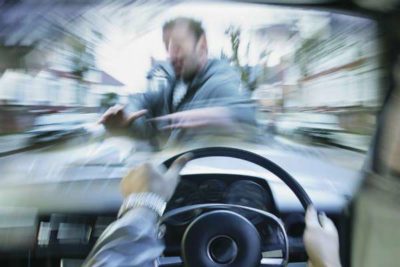Illinois police officers face a tough task when it comes to stoned driving. Law enforcement officials expect a significant increase in the number of people driving after smoking pot. While patrol officers can use Breathalyzers to help check whether people are driving while drunk, they have no approved roadside test to see whether drivers are stoned. Jacksonville Police Chief Adam Mefford said that blood testing takes a long time and could be expensive. “These are private companies, one is in Pennsylvania and another is in Northern Illinois. When we send out a blood sample to the Illinois State Police Crime Lab, that doesn’t cost us anything but it gets very expensive when you send it to one of these private companies.”
Mefford says that the local police department has the ability to field test the substance and have it verified by the Illinois State Police Crime lab, but testing for intoxication during a stoned driving incident will be tricky. Mefford said that he only knows of 2 private companies across the country that can test blood and urine.
The problem is, there is no scientific standard for establishing impairment based on the amount of THC — the main component of pot that gets users high — in the body. The drug is metabolized very quickly, but remains in the body for a long time, well after the high wears off. That means there may be a long legal fight ahead for any attempt to create a parallel policing system for pot as there is for alcohol.
Illinois law sets the definition of driving impairment from marijuana at 5 nanograms per milliliter of blood, or 10 ng/ml of other bodily fluids such as saliva or urine. New roadside tests are being developed to test saliva. Devices made by mLife Diagnostics of Marshall, Texas and the SoToxa Mobile Test System, made by north-suburban Illinois -based Abbott may act as breathalyzers for THC for some departments in the state. For now, departments like Jacksonville will have to rely on the slower methods to nab stoned drivers on highways.




